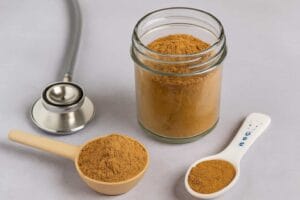Have you ever wondered why some natural remedies seem to resonate so deeply, almost like a quiet reassurance from nature itself? Among these treasures, Chaga tea as antioxidant stands out—not just as a health trend, but as a gentle, powerful way to nurture your body from the inside out. This earthy, rich brew has been cherished for centuries, especially in cold climates where its resilience mirrors the strength it imparts to those who sip it. But what is it about this mushroom tea that makes it such a compelling antioxidant ally? Let’s explore the story behind the magic and why it might just become your new favorite ritual.
The Heart of Chaga: What Makes It a Potent Antioxidant?
Chaga (Inonotus obliquus) is a fungus that grows primarily on birch trees in northern regions like Siberia, Canada, and parts of Northern Europe. Its rugged exterior hides a treasure trove of bioactive compounds, many of which contribute to its antioxidant properties. Antioxidants are molecules that help neutralize free radicals—those pesky unstable molecules that can damage our cells and accelerate aging.
What truly sets Chaga apart is its unique composition. It contains high levels of superoxide dismutase (SOD), melanin, and polysaccharides, all known for their ability to combat oxidative stress. This stress, if left unchecked, contributes to chronic inflammation, premature aging, and a host of health issues.
| Key Antioxidant Components in Chaga | Role in the Body |
|---|---|
| Superoxide Dismutase (SOD) | Neutralizes damaging free radicals, protecting cells from oxidative damage |
| Melanin | Provides protection against UV radiation and supports skin health |
| Polysaccharides | Boost the immune system and reduce inflammation |
| Betulinic Acid | Exhibits anti-inflammatory and antiviral properties |
When you brew Chaga tea, these compounds gently infuse your cup, offering a warm, earthy flavor that’s both grounding and invigorating. It’s no wonder that many people turn to this tea not just for its taste, but for the feeling of calm resilience it imparts.
How Chaga Tea as Antioxidant Supports Your Wellbeing
We often hear about antioxidants in the context of skincare or anti-aging, but their benefits go much deeper. Drinking Chaga tea as antioxidant is like giving your cells a little extra armor against the daily wear and tear of modern life. Here’s how it can support your body and mind:
- Fights oxidative stress: By neutralizing free radicals, Chaga tea helps reduce cellular damage that can lead to chronic diseases.
- Supports immune function: The polysaccharides in Chaga have been shown to enhance immune response, helping your body fend off illness.
- Promotes skin health: Thanks to melanin and other antioxidants, Chaga tea may protect your skin from environmental damage and support a youthful glow.
- Balances inflammation: Chronic inflammation is linked to many health challenges, and Chaga’s anti-inflammatory compounds help keep it in check.
Interestingly, the benefits of Chaga tea extend beyond the physical. Many who incorporate it into their daily routines report a sense of mental clarity and emotional calm. Perhaps it’s the mindful act of brewing and sipping, or maybe the mushroom’s subtle compounds gently soothe stress and fatigue.
If you’re curious about integrating medicinal mushrooms into your wellness journey, you might enjoy reading about the anti-aging benefits of Reishi mushroom, another powerful fungus with complementary properties.
Brewing the Perfect Cup: Making the Most of Chaga Tea as Antioxidant
Not all teas are created equal, and with Chaga, the preparation method truly influences the potency and flavor. Traditionally, Chaga chunks or powder are simmered in hot water for an extended period—sometimes up to several hours—to extract maximum antioxidants and nutrients.
Here’s a simple guide to brewing your own nourishing cup:
- Use quality Chaga: Look for sustainably harvested, wild Chaga from trusted sources.
- Break it down: Use chunks or powder for easier extraction.
- Simmer gently: Place Chaga in a pot with water and simmer on low heat for 1 to 3 hours. Avoid boiling vigorously, which can degrade delicate compounds.
- Strain and savor: Pour the tea through a fine mesh or cheesecloth and enjoy warm. You can add a touch of honey or cinnamon for flavor.
Because of its earthy bitterness, some people blend Chaga tea with other herbs or spices for a more balanced taste. Experimenting with your brew can be a delightful ritual that connects you to the natural world.
Is Chaga Tea as Antioxidant Right for Everyone?
While Chaga tea offers many potential benefits, it’s important to approach it thoughtfully. If you’re pregnant, nursing, or have autoimmune conditions, it’s wise to consult a healthcare professional before adding Chaga to your routine. Additionally, those on blood-thinning medications should be cautious, as Chaga may have mild anticoagulant effects.
For anyone curious about natural supplements, understanding how mushrooms like Chaga fit into a broader wellness plan is key. If you’re interested in managing blood pressure naturally, you might find this article on mushroom capsules for managing blood pressure insightful and complementary to your exploration.
Ultimately, Chaga tea as antioxidant is less about instant miracles and more about consistent care—an invitation to slow down, nourish your body, and embrace a little daily magic.
At the end of the day, focusing on Chaga tea as antioxidant is one of the best gifts you can give yourself. It’s not a quick fix, but a lifestyle change that promises lasting benefits.
F.A.Q
- What are the main components of Chaga tea as antioxidant?
Chaga tea as antioxidant is made up of physical, mental, and emotional well-being. It involves everything from staying physically active to managing stress and nurturing your emotional health. - Can focusing on Chaga tea as antioxidant improve my overall life?
Absolutely! When you take care of your body and mind, you’re setting yourself up for success. From greater productivity to enhanced mood and energy levels, the benefits of prioritizing Chaga tea as antioxidant are immeasurable. - What’s the best way to start improving my Chaga tea as antioxidant?
Start with small, manageable steps. Introduce more physical activity into your day, make mindful food choices, and carve out time for relaxation. Over time, you’ll notice significant changes. - What does research reveal about the anti-inflammatory properties of Chaga mushroom extracts
A 2022 study published in *Molecules* investigated the anti-inflammatory effects of *Inonotus obliquus* (Chaga mushroom) extracts obtained using different extraction methods. The findings showed that Chaga extracts significantly reduced inflammation in LPS-induced RAW 264.7 macrophage cells, indicating strong anti-inflammatory potential. The study highlights that the extraction method plays a key role in determining the bioactive strength of Chaga compounds, supporting its use as a natural anti-inflammatory agent. Read the full article: [The Anti-Inflammatory Properties of Chaga Extracts Obtained by Different Extraction Methods against LPS-Induced RAW 264.7](https://pmc.ncbi.nlm.nih.gov/articles/PMC9268247/) - How can sleep affect Chaga tea as antioxidant?
Sleep plays a crucial role in rejuvenating your body and mind. It’s during sleep that your body heals and replenishes itself. Poor sleep can lead to a decline in both physical and mental Chaga tea as antioxidant. For tips on supporting skin health as part of your wellness journey, you might also find this guide on Reishi mushroom for skin health helpful.



